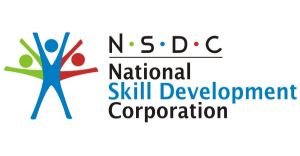What is a Skill?
A “skill” is a piece of expertise normally gained by acquiring the knowledge, skills, and behavior associated with a particular occupation. “Skill competition” which is based on one or more occupations for which there is a benchmark, description, or specification.
The skill competitions are referenced to occupations, since these are internationally understood, associated with a career, and have longevity.






The role and purpose of the WorldSkills Competition
The WorldSkills Competition sits at the top of vocational skills competitions for young people across the world. Participation is normally based on success in national and/or regional/continental skills competitions. Competitions selected for the WorldSkills Competition should reflect their value to the occupations that most benefit from the exceptional performance of well-prepared and talented young people. In this way the WorldSkills Competition contributes to the collective and individual wellbeing of societies and economies worldwide.
The vocational context
The WorldSkills Competition has spanned decades in which labour markets, economies, and societies have moved from stability to dynamism, predictability to volatility. New technologies present multifaceted challenges to both the nature of work, and preparation for working futures. Therefore, the WorldSkills Competition now requires a flexible, responsive, intelligence-led approach to the selection and organization of its skill competitions.
Overarching principles to underpin such an approach are:
- Mobility: to support the mobility of people and skills for access, sustainability, transfer, and progression in work and life. Occupationally this involves “reading across” occupations, and supporting the creation of occupational route maps.
- Connectivity: actively and precisely to support the development of Members’ vocational education and training systems (VET) in relation to their economies, labour markets, and societies.
- Optimization: to move from a competition portfolio based on history, supply, and pragmatism, to a dynamic relationship with large global occupational and social trends.
Vocational Trends
Occupational and social trends are challenging current assumptions and approaches to vocational education and training. These include:
- The expansion of skills development into and across higher levels of education,
- Greater diversity and richness in skills development,
- A wider sense of ownership and concern, and
- A stronger appreciation and understanding of skills development.
These trends are already seen within the WorldSkills Competition and should be directly reflected in the selection and organization of the skill competitions.
- A more rounded and authentic view of the world’s vocational development.
- A more informed approach to the selection and organization of skill competitions; and
- A greater responsibility to accommodate divergent interests and needs, within an accessible competition structure and a representative selection of skill competitions.
The vocational context
The WorldSkills Competition has spanned decades in which labour markets, economies, and societies have moved from stability to dynamism, predictability to volatility. New technologies present multifaceted challenges to both the nature of work, and preparation for working futures. Therefore, the WorldSkills Competition now requires a flexible, responsive, intelligence-led approach to the selection and organization of its skill competitions.
Overarching principles to underpin such an approach are:
- Mobility: to support the mobility of people and skills for access, sustainability, transfer, and progression in work and life. Occupationally this involves “reading across” occupations, and supporting the creation of occupational route maps.
- Connectivity: actively and precisely to support the development of Members’ vocational education and training systems (VET) in relation to their economies, labour markets, and societies.
- Optimization: to move from a competition portfolio based on history, supply, and pragmatism, to a dynamic relationship with large global occupational and social trends.
Vocational Trends
Occupational and social trends are challenging current assumptions and approaches to vocational education and training. These include:
- The expansion of skills development into and across higher levels of education,
- Greater diversity and richness in skills development,
- A wider sense of ownership and concern, and
- A stronger appreciation and understanding of skills development.
These trends are already seen within the WorldSkills Competition and should be directly reflected in the selection and organization of the skill competitions.
- A more rounded and authentic view of the world’s vocational development.
- A more informed approach to the selection and organization of skill competitions; and
- A greater responsibility to accommodate divergent interests and needs, within an accessible competition structure and a representative selection of skill competitions.






